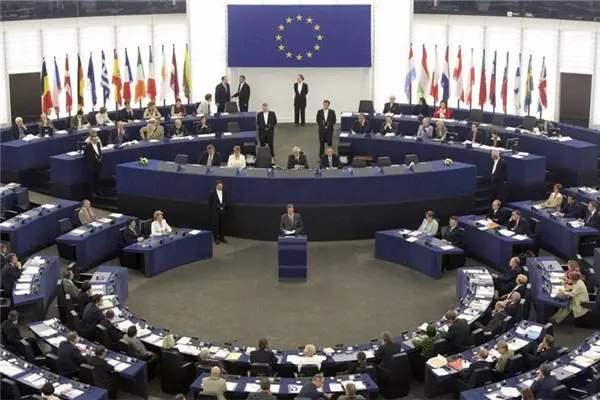In a part-session debate in Brussels on Wednesday evening, Members of European Parliament (MEPs) argued over the need for the speedy implementation of the EU-U.S. Data Protection agreement before the end of U.S. President Barack Obama's term of office ends in January.
The umbrella agreement aims to ensure high, binding data protection standards for data exchanged between law enforcement authorities for cross border prevention, tracking and prosecution of criminal offences, including terrorist acts.
Rapporteur Jan Philipp Albrecht called the agreement "a historical breakthrough," continuing that "For the first time in history, the United States of America are entering a binding international agreement on data protection standards."
"This is unprecedented, not only in the transatlantic context, but also on the international level," declared Vera Jourova, the European Commissioner for Justice.
"Today, Americans already enjoy these protections when their data is transferred to the EU, while this is not the case for Europeans when their data is transferred to the United States," she pointed out.
During the debate, however, U.S. President-elect Donald Trump was evoked several times, as MEPs worried over the effect his administration would have on the future of the umbrella agreement if it was not already implemented.
"The uncertainty of the incoming Trump administration is just one more reason to conclude the agreement while President Obama is still in office," urged Albrecht to his fellow MEPs.
"If we conclude this agreement, the United States will be bound by international law which gives unconditional data protection rights," said Albrecht.
Marju Lauristin (Estonia), speaking on behalf of the Socialists and Democrats group, echoed the rapporteur: "In the real world, with the incoming Trump administration, I think that delaying the decision, it means that we are really naive, to hope that we will have a better situation with this new administration compared with what we have."
She went on, however, to admit that the European Union (EU) needed cooperation with the United States.
Critics of the umbrella agreement, however, warned that despite the inclusion of critical safeguards for personal data protection, the deal raised legal concerns.
"On the surface it looks really good, it contains really good safeguards, but it's a bit like with Swiss cheese, the cheese is fantastic, but it's the holes that are the problem in this case," joked Sophia In't Veld, speaking on behalf of the Alliance of Liberals and Democrats for Europe (ALDE).
In't Veld too, however, worried about the change of the political climate that would accompany the arrival of the Trump administration, warning against relying on the president-elect's word for the safeguarding of European citizens' rights.
Two motions for resolutions have been tabled by the ALDE group and the European United Left/Nordic Green Left group (GUE/NGL), seeking a European Court of Justice (COJ) opinion on the compatibility of the EU-U.S. deal on the protection of personal data exchanged for law enforcement purposes.
"I believe the resolutions that have been tabled are the expression of a kind of political helplessness, what they would do would be to let time go by unnecessarily," lamented Axel Voss (Germany) on behalf of the People's Party of Europe group (PPE).
He was echoed by Helga Stevens (Belgium), speaking for the European Conservatives and Reformers group, who argued, "The critics are saying that umbrella agreement should be torpedoed by means of sending it to the Court of Justice, it sounds lofty, it sounds noble, but it's just procrastination, it's just delay."
Sophia In't Veld defended her group's motion, however, saying, "An ECJ decision is not a stalling technique, but it will address very legitimate legal concerns."
"The Commission itself has, in writing, ... conceded that the umbrella agreement can only be considered implemented if the exemptions to the U.S. Privacy Act are repealed," she insisted.
A vote on both motions for resolutions is scheduled for Thursday, immediately before a vote on the European Parliament's consent for the EU-U.S. Data Protection Agreement.
The umbrella agreement has already been signed by the European Commission and the United States in June, but requires parliamentary consent in order to enter into force.
(APD)
 简体中文
简体中文

